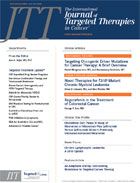Sunitinib vs Everolimus in First-Line Treatment of Metastatic RCC
The standard of care for metastatic renal-cell carcinoma (RCC) prevailed in a randomized comparison of everolimus and sunitinib as first-line therapy.
Robert J. Motzer, MD
The standard of care for metastatic renal-cell carcinoma (RCC) prevailed in a randomized comparison of everolimus and sunitinib as first-line therapy, according to data presented at the 2013 American Society of Clinical Oncology (ASCO) Annual Meeting.
The trial failed to demonstrate the noninferiority of everolimus for progression-free survival (PFS), as sunitinib- treated patients had a median PFS nearly 3 months greater than that of patients treated with everolimus.
Subgroup analysis did not identify any efficacy advantages with everolimus with respect to PFS or overall survival (OS), which was about 8 months longer with sunitinib. “Progression-free survival noninferiority was not achieved for first-line everolimus compared with sunitinib,” said Robert J. Motzer, MD, attending physician in Genitourinary Oncology at Memorial Sloan-Kettering Cancer Center in New York City.
“The sequence of first-line sunitinib followed by everolimus is supported by the preliminary overall survival results,” said Motzer. “The standard treatment paradigm remains first line with sunitinib followed by everolimus at progression.”
Everolimus is approved as a second-line therapy for metastatic RCC following progression on sunitinib. Efficacy in the second line and a favorable safety profile created a rationale to evaluate everolimus as first-line therapy.
Motzer reported findings from a phase II randomized comparison of the two agents in patients with metastatic RCC. Eligible patients had either clear-cell or nonclearcell RCC, no prior systemic therapy, and prior nephrectomy or not.
Patients were randomized to first-line treatment with everolimus or sunitinib and crossed over to the other drug at disease progression. Second-line therapy continued until disease progression or development of unacceptable toxicity.
The trial was statistically powered to demonstrate PFS noninferiority of everolimus versus sunitinib as first-line therapy for RCC. Noninferiority was defined as PFS differences ≤1.1 months for first-line everolimus versus sunitinib. Secondary objectives included combined PFS for sequential treatment, objective response rate (ORR), OS, and safety.
Investigators randomized 471 patients to initial therapy with everolimus or sunitinib. Subsequently, 201 patients (85%) in the everolimus arm and 192 (82%) in the sunitinib group discontinued first-line therapy, primarily because of disease progression (55% with everolimus, 52% with sunitinib).
Motzer reported that 207 randomized patients crossed over to second-line therapy. Second-line discontinuation rates were 71% with everolimus and 76% with sunitinib, and progression accounted for a majority of discontinuations.
Assessment of the primary endpoint showed a median PFS of 10.7 months with first-line sunitinib versus 7.85 months with everolimus. Stratification by Sloan-Kettering favorable-risk and poor-risk criteria yielded a median PFS of 11.07 and 2.63 months with everolimus versus 13.40 and 2.99 months with sunitinib. Patients with clear-cell and nonclear-cell histology gained about 2 months in PFS with sunitinib versus everolimus. The ORR was 8% with everolimus and 26.6% with sunitinib, and disease stabilization occurred in 57.6% and 51.9% of the respective groups.
Combined PFS from first- and second-line therapy showed an ever-larger advantage in favor of first-line sunitinib. Median PFS was 21.13 months among patients who started with everolimus and crossed over to sunitinib versus 25.79 months for patients who received first-line sunitinib followed by everolimus at progression. Median OS was 22.4 months with everolimus-sunitinib and 32 months with sunitinib-everolimus.
Treatment-emergent adverse events (AEs) during firstline therapy occurred in a similar proportion of patients in each arm. The most common AEs (≥10% of patients, all grades) were stomatitis, fatigue, diarrhea, cough, rash, nausea, decreased appetite, anemia, peripheral edema, dyspnea, dysgeusia, vomiting, constipation, hand-foot syndrome (sunitinib), and thrombocytopenia (sunitinib).
Motzer RJ, Barrios CH, Kim TM, et al. Record-3: phase II randomized trial comparing sequential first-line everolimus (EVE) and second-line sunitinib (SUN) versus first-line SUN and second-line EVE in patients with metastatic renal cell carcinoma (mRCC).J Clin Oncol

Enhancing Precision in Immunotherapy: CD8 PET-Avidity in RCC
March 1st 2024In this episode of Emerging Experts, Peter Zang, MD, highlights research on baseline CD8 lymph node avidity with 89-Zr-crefmirlimab for the treatment of patients with metastatic renal cell carcinoma and response to immunotherapy.
Listen
Beyond the First-Line: Economides on Advancing Therapies in RCC
February 1st 2024In our 4th episode of Emerging Experts, Minas P. Economides, MD, unveils the challenges and opportunities for renal cell carcinoma treatment, focusing on the lack of therapies available in the second-line setting.
Listen